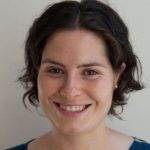With GCSE/A Level exams soon to start, and advance information provided by Ofqual and Exam boards for each level, subject and exam board. Students are starting to ramp up their revision. However, even the most knowledgeable students may not achieve their potential if they don’t have the skills or understanding of how to apply that knowledge.
Our guest Lucy Parsons is an experienced academic coach and has some invaluable insights for parents and students about spotting and answering different types of question.
You can read Lucy’s article here. If you only have 5 minutes to spare then here’s our summary of the key points.
Exam Board Approach
Bloom’s Taxonomy of Thinking Skills is widely acknowledged as the basis for structuring exam papers and the wording of specific questions. The name makes it sound complicated, but Bloom’s Taxonomy is very simple really. It just takes the most common skills that students are asked to use in the classroom and ranks them in order of their complexity.
Bloom’s Taxonomy can help students understand what skills examiners are testing
The higher up the Taxonomy you go, the more the thinking skills are valued academically.
Lucy has identified 3 simple ways to help students understand what the examiner is looking for:
- number of marks allocated to the question
- use of different command words in the question
- location of the question within the exam paper ie beginning, middle or near the end
So how does this work in practice?
Knowledge is concerned with recall, memory and knowing. Although it’s the simplest of the thinking skills, this is where most students spend most of their revision time. Getting higher marks requires students to demonstrate the more complex skills, with the result that understanding, and leaving time to practice, the more advanced skills is essential.
Questions testing knowledge normally:
- involve 1 and 2 mark questions
- use command terms like Describe; Define …;What is a …?
- are located early on in the exam or , for multi part questions, the very first sub question. Many subjects now have multiple choice questions at the end that test this too.
Understanding is about students being able to distinguish between two similar ideas or things by using their knowledge to recognise the difference. E.g. Biology students studying cell division would need to:
- know what the two terms mean (knowledge)
- understand the differences between the two processes (understanding)
- be able to explain what happens at each stage of the two processes (understanding)
Questions testing knowledge & understanding normally:
- involve 1 – 4 mark questions
- use phrases like Describe the difference between X & Y; Give an example of X and an example of Y; Describe how & why … happens
- are located near the beginning of a paper up to half-way through
Application involves students using their knowledge and understanding in new and different circumstances. Going back to the biology example, an application question might involve candidates being provided with a photograph of a microscope view of dividing cells and being asked to identify the process that is taking place (is it mitosis or meiosis) from the photographs and explain how they know that from the evidence in the picture.
Questions asking students to apply knowledge/understanding normally:
- involve 2 – 6 mark questions
- use command terms like Calculate; Label; Complete
- are located a few questions into the paper or halfway through a longer, multi part question
Analysis: This is about how students can take apart information or data in order to discover relationships, motives, causes, patterns and connections. In an exam, students may be given a graph or a data table and be asked to describe or explain what the data is showing.
For example, a geography question might include a graph showing carbon dioxide levels from 1900 to present. Good answers might say it increased from x amount in 1900 to x amount in 1950, then the rate of increase became more rapid with atmospheric carbon dioxide reaching x in 2018.
Questions testing analysis skills normally:
- involve 2 – 15 mark questions, although it does vary by subject type. For sciences, marks are usually at the lower end (2-4) whereas humanities and long form subjects will be higher
- use command words like Explain; Why; Outline; How successful was …; What are the advantages & disadvantages of …; Compare & contrast… ; Would you recommend…?
- are located in the second half of a paper or in the latter half of a multi part question
Synthesis: This involves students creating something new and original, using all their knowledge, understanding and skills.
Questions testing synthesis skills normally:
- comprise long form questions with high marks. In addition to marks for structure and logic, marks are likely to be awarded for things like spelling, punctuation and grammar
- use command words like Discuss; How far was X due to Y; How successful was …; How accurate is this description…; To what extent do you agree with …
- are located near or at the end of the paper
Evaluation: This involves passing judgement on something and is commonly tested as part of practical work for coursework or controlled assessments. Science exams also frequently ask students to evaluate methods used in experiments eg give one advantage of using a temperature sensor attached to a data logger instead of a thermometer.
Questions testing evaluation skills:
- vary wildly in the number of marks, ranging from 1 mark for the example question above to around 10 marks for essay questions asking students to critique an idea
- use command words like Evaluate ; Critique ; Recommend ; Appraise ; Compare; Summarise
- may be sprinkled throughout the paper for science subjects. For other subjects they’re more likely to be at the end.
Did you know that a large proportion of Justin Craig tutors are examiners? So when looking at past paper or practice questions, our students have the perfect opportunity to practice these key thinking skills and get expert advice on how to achieve top marks.








 See More Genuine Reviews
See More Genuine Reviews